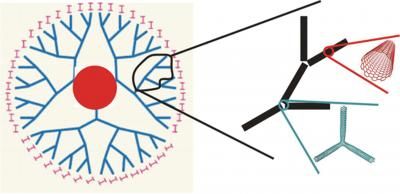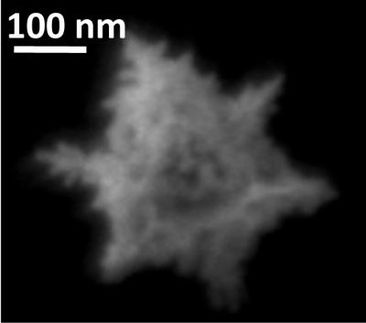Paper-based biodegradable and eco-friendly sensor for sensing the food status
Eco-friendly and biodegradable electronics that is fitting the worldwide ‘Green New Deal’ trend, big contribution is expected not only in daily life but food industry
The research group led by Prof. Seung Hwan Ko, in Dept. of Mechanical Engineering in Seoul National University, developed the technology for sensing food temperature and freshness, based on laser-induced graphene on eco-friendly and biodegradable commercial paper.
Recently, environment and food safety has been a worldwide issue in food industry. According to the inquiry of Greenpeace in 2021, the 78% of domestic plastic waste was originated from food-containing package. Thus, the severe environmental problem has been raised due to excessive use of plastics, multinational corporates such as Starbucks, Cocacola and McDonald’s launched the biodegradable cup, bottle and straw based on paper, leading in eco-friendly innovative technology. Besides, as mass production and long distance distribution are widespread, global food safety related accidents are concerned. In turn, to resolve complex problems in food industry, eco-friendly food package and real time monitoring technology are required.
Recent advances in food storage and monitoring technology have enabled a variety of applications in the food industry. However, in current food condition detection platform, an additional sensor must be attached to the food storage container, and the sensor used is usually a non-biodegradable material, which also has a problem in terms of eco-friendliness.
The research group led by Prof. Ko fabricated the laser-irradiated graphene sensor on commercially available milk cartoon, and developed a platform for sensing food freshness by detecting the gas comes from food. In addition, a paper-based laser-induced graphene sensor was fabricated on the back of the barcode to enable real-time monitoring of the freshness of meat over time with a mobile phone. Moreover, it is possible to provide a user with thermal information of food by manufacturing a sensor on a general paper cup in the same way, detecting the temperature of the liquid contained.
The research group led by Prof. Ko focused on laser-induced graphene. The research team has developed a technology for synthesizing graphene through the local thermal reaction by irradiating a laser on a carbon-based eco-friendly paper substrate. As a result, the sensor was produced directly on a substrate made of cellulose used for food packaging without additional processing, thereby establishing a platform that can detect the state of food in continuous real time.
Here, laser-induced graphene is one of the allotropes of carbon such as carbon nanotubes, fullerenes, and diamonds. It has an excellent electron mobility that enables LIG to sense the temperature and a high specific surface area that allows LIG to detect the gas moleclues well.
If most of foods were not stored at the proper temperature, the food will release gas as pathogens grow in the food. In other words, it is important to continuously monitoring the temperature of a food, as the storage temperature determines the future of the food status. In addition, as mentioned before, since most foods release gas when they decompose, the freshness of the foods can be determined by detecting the emitted gas. That is, by grasping the freshness and temperature of the food, it is possible to obtain information of present and future state of the food.
The paper-based food temperature and freshness sensing platform developed in this study is expected to solve environmental and safety related food issues by providing information of the current and future state of food. The research team demonstrated the actual food spoilaging situation, by detecting the food spoilage signal, and sensed the food temperature in various thermal environments.
Professor. Seung Hwan Ko referred, “This achievement is a research that fits the global Green New Deal trend, and is expected to provide valuable assets and insight into the development of technologies that can solve environmental and safety related issues in the food industry. And further from the food industry, it is expected to be used in various industrial fields as an eco-friendly and biodegradable material based temperature and gas sensor.”
The research results have received the worldwide attention and were published online on July 19, 2022 in "Applied materials today", an academic journal in the field of materials science. (Smart paper electronics by laser-induced graphene for biodegradable real-time food spoilage monitoring)
This research was supported by the Nano Material Technology Development Project of the National Research Foundation of Korea.























































